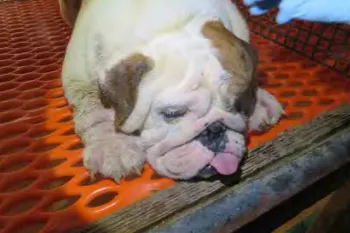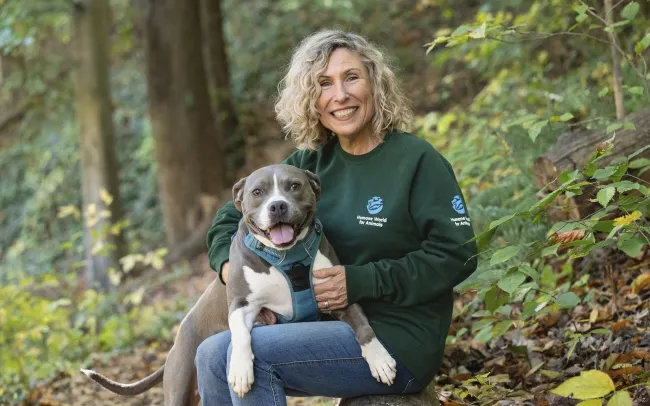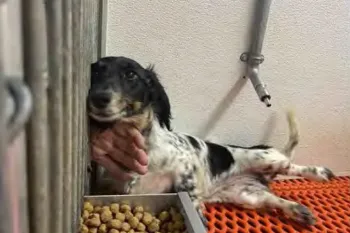There are leaders in the U.S. Congress stepping up to meet the need for enhanced Animal Welfare Act enforcement through the Better Collaboration, Accountability, and Regulatory Enforcement (CARE) for Animals Act.
There’s a new chance to strengthen the Animal Welfare Act’s enforcement in the U.S., and such progress cannot come soon enough for animals currently languishing in facilities such as research laboratories, roadside zoos and puppy mills that aren’t meeting minimal standards of care.
Earlier this month, we published our 13th annual Horrible Hundred report to warn the public about common problems at puppy mills, and to promote enhanced laws and regulations along with effective enforcement actions. At the 100 puppy mills highlighted, we documented conditions that included injured, sickly or emaciated dogs or puppies; animals exposed to extreme heat or cold; dogs kept in dangerous, dirty or cramped conditions; and operators who did not take steps to prevent and treat potential disease outbreaks, among other concerns.
One of the most heartbreaking and infuriating parts of the report is the staggering tally of repeated violations. Indeed, 38 of the breeders in the 2025 report have accumulated several violations and appeared in one or more of our 12 prior reports. While some of the facilities are not licensed by the U.S. Department of Agriculture—sometimes having voluntarily withdrawn their license to avoid federal inspection—it is not uncommon for derelict facilities to continue operating without correction from any authority.
Take Stonehenge Kennel in West Point, Iowa. Despite its being cited multiple times over the years—and its appearance in seven prior Horrible Hundred reports—authorities have let its owner stay in business year after year. The kennel has repeatedly failed to meet basic USDA standards, with over 140 sick or injured dogs documented there since 2015. At a recent inspection, it had almost 500 dogs. And although the facility does pass some inspections, it doesn’t stay in compliance consistently. Photographs taken by USDA inspectors in recent years have documented numerous dogs with matted fur, oozing eyes and painful-looking wounds. The facility euthanized at least 199 dogs in 2021. In August 2024, USDA inspectors found food bowls smeared with dried feces and “brown organic material.” Although operator Steve Kruse has been suspended at least twice, including a 21-day suspension in 2023, violations at the facility continued even during the suspension periods.
The federal Animal Welfare Act is meant to protect animals housed in research and breeding facilities, exhibitions and roadside zoos. Yet with only limited enforcement capabilities and resources to carry out its functions, the USDA has its hands full, and too many facilities are getting away with serious violations of the Animal Welfare Act.
Thankfully, there are leaders in the U.S. Congress stepping up to meet the need for enhanced Animal Welfare Act enforcement through the Better Collaboration, Accountability, and Regulatory Enforcement (CARE) for Animals Act. This bill, reintroduced this week, would usher in a new era of improved interagency cooperation to fight cruelty and reinforce the premise that the welfare of animals in regulated facilities requires higher standards of treatment.
The bill was introduced by Sens. John Kennedy, R-La. and Richard Blumenthal, D-Conn., and Reps. Nicole Malliotakis, R-N.Y., Mike Quigley, D-Ill., Guy Reschenthaler, R-Penn., and Sharice Davids, D-Kan., More than 80 shelters, rescues, sanctuaries and animal protection groups have endorsed it. In the last Congress, the bill gained 220 co-sponsors in the House and 39 in the Senate.
Key to the bill’s promise to close the current gap in Animal Welfare Act enforcement is that it would enable and encourage the USDA and the U.S. Department of Justice to collaborate more effectively on federal cases, sharing evidence needed to initiate cases involving violators who have multiple citations. It would also allow the DOJ to seek, in federal court, license revocations, civil penalties and forfeiture to remove animals in harmful conditions.
As we have seen in a few recent cases, when the DOJ assists the USDA with enforcement, it not only saves vulnerable animals from suffering, but also sends a powerful message that the treatment of animals matters and is a concern for governing entities, enshrining such a value as part of what it means to be American. Under the first Trump administration, in 2020, the DOJ used this power in a case against a big cat exhibitor, Jeffrey Lowe, and Tiger King, LLC, for chronic violations. The government seized 68 big cats, including lions and tigers, under the Endangered Species Act forfeiture provision. With similar authority under the Better CARE for Animals Act, hundreds of additional animals can be saved from abuse, neglect and mistreatment.
We believe that coordination between these two agencies can make a substantial difference for animals in regulated facilities, helping to prevent animal suffering.
Sara Amundson is president of Humane World Action Fund.




